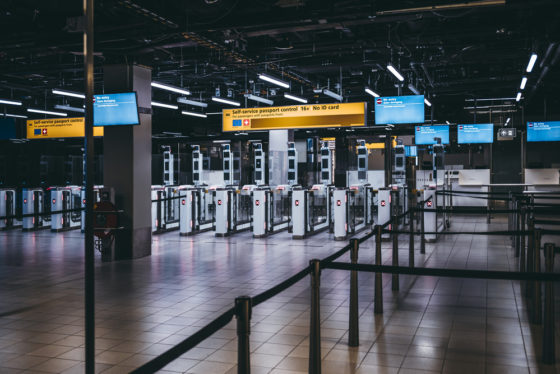As the population grows, we need more labour migrants, not fewer


Immigration might be a hot topic at the moment but the Netherlands should limit labour migration at its peril, warns economist Mathijs Bouman.
Do you sometimes get the feeling there’s not enough elbow room in the Netherlands? If the national statistics office CBS is right, it will only get more crowded in the next 30 years. There are currently some 17.4 million people living in this country. By 2050 that number will have gone up to 19.3 million. It’s a faster rise than previously projected.
The latest CBS prognosis says the population will grow by one million in the next decade. Immigration will top emigration and the number of births will outstrip the number of deaths. In the decades after that population growth will slow down but still be on the up.
Old news, you say. And you would be right. The latest prognosis dates from December 17th of last year. But because my health prevented me from commenting at the time I will do so now. (for those who are interested, I’m up and about again and thanks everyone for your comforting emails. And yes, the Netherlands has the best healthcare system in the world, with fantastic doctors and nurses).
Knee-jerk reactions
My late reaction is perhaps a good thing. Others have offered their knee-jerk reactions but there have been quite a few other news items since that can be linked to this demographic development, from both sides of the political spectrum.
Health minister Hugo de Jonge told the NRC that population growth was the biggest challenge facing the Netherlands. ‘Migration is happening to us,’ he said. The number of labour migrants is ‘too high’ and ‘it is time we in Europe re-evaluate the effects of the free movement of labour’.
Before that the ChristenUnie and SP had presented a joint Labour Migration Action Plan proposing quota and labour permits for EU workers. Terms such as ‘unbridled migration’ and ‘social disruption’ were not shied away from.
Labour migration is not popular in 2020. That is surprising because if the CBS prognoses demonstrate anything at all it is that we will be in dire need of labour migrants in the coming decades.
Ageing
Population growth is not the most significant outcome of the CBS calculations. It is the ageing population. Yes, more people will come here but on balance the potential labour pool remains about the same.
In the category of 20 to 65-year olds (66 would have been a better number in view of the pension age but this is how the CBS presents its figures) population growth until 2050 is only 0.8%. The number of 65s and over will rise by more than 30% in the same period. The numbers of children and youngsters will have gone up by 8% by 2050.
Despite labour migration, the same number of workers will have to maintain a growing group of elderly (and a few more youngsters) come 2050. At this moment there are three working people for every one aged 65 year old and over. In 10 years’ time that will have gone down to just over two. The social problem is not a surplus of labour migrants, but a structural shortage of people who can and want to work.
But the Netherlands prefers to ignore the fact its population is getting older. Trade union federation CNV blithely proposed a 30-hour working week, as if we can afford to work even less.
Part-time jobs
Those who dare suggest the Dutch part-time working culture is perhaps unsustainable are blasted with angry reactions. Trade union federation FNV wants the pension age to rise more slowly, resulting in even fewer workers. It also wants a hefty pension hike next year, as if deaf to the ticking demographic time bomb under the pension system.
Please, everybody, get your heads out of the sand. The Netherlands is going grey at the rate of knots. Forget all about political and union pet projects. The ageing population will cause critical labour shortages and the only way out is more labour migrants, not fewer. The alternative will be structural shortages, waiting lists and inadequate services.
So if you feel you’re jostling for space just remember it’s not a problem but part of the solution.
This article appeared earlier in the Financieele Dagblad
Thank you for donating to DutchNews.nl.
We could not provide the Dutch News service, and keep it free of charge, without the generous support of our readers. Your donations allow us to report on issues you tell us matter, and provide you with a summary of the most important Dutch news each day.
Make a donation